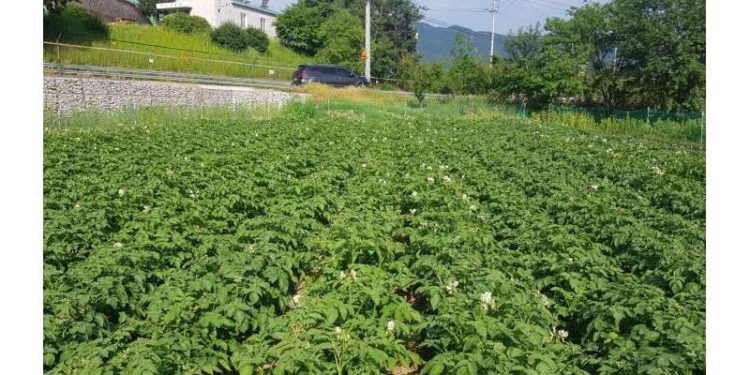A recent study published in the esteemed journal Potato Research sheds light on the intricate relationship between climate change and potato cultivation in South Korea. Led by a team of scientists from the Leibniz Center for Agricultural Landscape Research (ZALF) and the Brandenburg University of Technology Cottbus, the research delves into the effects of global warming on both spring and summer potato crops, offering valuable insights and adaptation strategies for farmers.
Dr. Yean-Uk Kim, the lead author of the study and a dedicated researcher at ZALF, emphasizes the significant findings of the research. “Our study reveals that the CO2 fertilization effect can potentially counteract the adverse impacts of rising temperatures, leading to a remarkable increase in spring potato yields of up to 60% with proper adjustments in planting schedules,” Dr. Kim explains. The CO2 fertilization effect refers to the phenomenon where elevated CO2 levels in the atmosphere enhance the photosynthetic capacity of plants, resulting in accelerated growth and improved yields.
The research underscores the importance of climate-resilient potato varieties as a key solution for the future of potato cultivation in South Korea. Recommendations include advancing planting dates for spring potatoes in response to moderate climate changes and developing heat-tolerant strains to withstand more severe climate conditions. For summer potatoes, enhancing heat tolerance is highlighted as a critical factor for ensuring successful cultivation, regardless of the prevailing climate scenarios.
Dr. Kim emphasizes the broader implications of the study for ensuring sustainable agricultural practices and long-term food security in the region. “Our findings serve as a blueprint for formulating effective regional adaptation strategies that can mitigate the impacts of climate change on potato cultivation,” he states. The integration of agricultural and climate models stands out as a promising approach to devising resilient strategies that align with the evolving climate patterns.
Looking ahead, the research team aims to expand their investigations to encompass the influence of escalating extreme weather events on agricultural production. By delving deeper into these aspects, the researchers seek to gain a comprehensive understanding of the challenges faced by farmers in the wake of climate change, paving the way for more tailored and impactful adaptation strategies to safeguard potato cultivation in South Korea.





